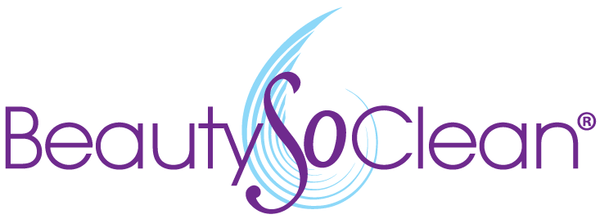
The Dirty Truth: Makeup Brushes & Bacteria
Share

How often do you clean your makeup brushes? If the answer is never, or even just once in a while, you are not alone. A poll recently found that 61% of women clean their makeup brushes once a month, if at all!
If you do fall into this category, you may want to reconsider your habits. The Coronavirus outbreak has made us all painfully aware of our cleaning habits, with every surface in sight given a thorough wiping down and our hands washed twice over. But, as we continue to adjust to this “new normal” we are also being forced to reconsider just how hygienic other items we come into contact with on a day-to-day basis really are.
Yes, cleaning makeup brushes can be a chore, but the combination of leftover makeup, skin cells, oils from your skin and whatever else might get onto your brush means your makeup tools are a hotbed for potential bacterial growth.
In a study, published in the Journal of Applied Microbiology, researchers found that 70% to 90% of all of the cosmetic products and tools they tested had been contaminated with fungus and bacteria, including E. coli and Staphylococcus aureus.
Are you applying more than makeup with your brushes?
Through daily use, makeup brushes can accumulate dead skin cells, dirt, oil, pollution, and bacteria. These includes staphylococcus, e coli, fungus, and viruses. Think this sounds far-fetched?

Staphylococcus aureus is commonly found on around 30% of people’s skin and causes skin infections but it can also cause pneumonia, heart valve infections, and bone infections when skin infections develop. An Australian woman contracted a staph infection (Mum left in wheelchair after catching infection from makeup brush | Daily Mail Online) after sharing makeup brushes with a friend, leaving her paralyzed in the legs and arms.

Escherichia coli (E. coli) is a type of bacteria common in human intestines, some of which can cause food poisoning and serious infection. Keep your makeup brushes in your bathroom?. It’s easy for these bacteria to be transferred to makeup products, bags and brushes. Just one flush of a toilet can send millions of aerosolized germs upwards and out, which then settle on your favourite makeup brush (and your toothbrush!).
When you think of pinkeye, you probably picture red, watery eyes caused by a disease that really only affects schoolchildren. But as it turns out, your unwashed makeup brushes could potentially be carrying Conjunctivitis bacteria, which means you could be just one smokey-eye look away from contracting the nasty disease. While it is a common and non-deadly infection, unlike some others in this article, pink eye is nevertheless something you probably want to avoid whenever possible.
Viruses can last anywhere from a few seconds to a few days on common surfaces. A simple sneeze or cough could transmit these virus particles on to your cosmetics or cosmetic brushes, where they are then able to transfer to the next surface they encounter – including your skin!
Flu viruses can survive in the air for several hours, especially at lower temperatures, and on hard surfaces they can survive and remain infectious for 24 hours. If you applied makeup to hide those pre-flu black circles under your eyes, and red rings around your nose, chances are that the virus is there waiting for you when you grab that brush next!
Can makeup brushes cause you to catch herpes? According to some experts, the answer is yes. In fact, in 2017, CNN reported that a woman who claimed she caught herpes from testing makeup was actually totally valid in her assumption. According to CNN, since herpes on your face can last for ten days or so, any makeup brushes used within this timespan could pick up the virus and spread it to other parts of your face. Additionally, if a makeup brush contracts herpes and then comes in contact with a cut on your skin, you could possibly get it again.
What about coronavirus? While there haven’t been any specific studies on the transmission of coronavirus through makeup products, the fact that the virus can live on plastic surfaces does pose a risk for the contents of our makeup bags and skincare products. After being expelled from the body, coronaviruses can survive on surfaces for hours to days. If a person touches the dirty surface, they may deposit the virus at the eyes, nose, or mouth where it can enter the body cause infection.
What does this all mean?
How often should you clean your brushes?
If you are someone who wears makeup every day, it's safe to say that makeup brushes are a necessity for you. And even if you only wear makeup a few times a week, your makeup brushes probably see quite a bit of action. Because of that — and because they can get really dirty — your makeup brushes should be washed regularly. Nancy Crossley, creator of BeautySoClean, recommends people clean their makeup brushes after every single use, even if that means you have to do so daily.
Is it OK to use makeup brushes that have been sitting around for a while?
You know those makeup brushes that remain unused because the bottom half of your face has been covered with a mask in public for over a year? You can technically use them again, but you really want to give them a deep clean first.
How to clean your brushes with BeautySoClean:

